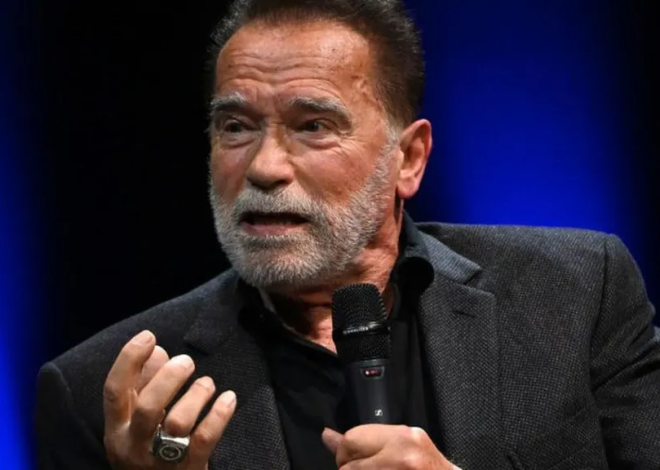
A Royal crisis: The shocking moment King Edward VIII announced his abdication to the nation
On 11 December 1936, unable to reconcile his desire for US divorcée Wallis Simpson with his role as King, Edward VIII made the shocking decision to abdicate the throne, bringing an end to a crisis that tested the boundaries of duty, love and the monarchy itself.

“At long last I am able to say a few words of my own,” was how the royal, who the day before was known as King Edward VIII, began a BBC radio broadcast that would not just stun the listening public but reshape the future of the monarchy. Over the next seven minutes he explained how he had decided voluntarily to abdicate the throne, the first English monarch to do so, in order to marry the woman he loved, US socialite Wallis Simpson.
Up until the week before the broadcast, most of the British public had known nothing about it. Edward was already a controversial figure, and while his relationship with Mrs Simpson had been openly reported in Europe and the US, an effective blackout on the story agreed between the government, the press and the BBC had meant that, in the UK, people were only just learning about it. The broadcast itself was the final act of what had become a constitutional crisis for the country.
Edward had fallen in love with Wallis Simpson, the wife of a US businessman Ernest Simpson, in the early 1930s. It was not the first relationship Edward had had with a married woman, but in January of 1936 the tumultuous love affair took on a whole new significance, when George V died and Edward became King. The situation began to further unravel in October that same year, when Wallis Simpson was granted a decree nisi – a provisional decree of divorce – from her husband, and it became clear that the new King was intent on marrying her. This match was met with staunch opposition from many within the British establishment. The Church of England, of which Edward as the monarch was the head, the government and Edward’s own advisors all made it clear that the idea was untenable. It was revealed in papers released in 2013 that the Home Secretary, Sir John Simon, was so worried about keeping on top of the escalating situation that he had the King’s phone bugged.
The Prime Minister Stanley Baldwin warned the King that he thought the British public would simply not accept the prospect of a twice divorced American woman as their Queen. Despite this, Edward could not be dissuaded, saying he was prepared to abdicate if the government continued to oppose his marriage. Under mounting pressure to give up his relationship, Edward tried to argue the case for morganatic marriage (marriage between people of unequal social rank) to Wallis Simpson, in which he could still be King but she would not be Queen, merely his consort. But this idea was summarily vetoed by the Cabinet Office.
An explosive broadcast
The King then told the PM he wanted to broadcast an appeal to the nation. Edward had made the first ever royal broadcast in 1922, so well understood the power of radio to shape opinion. On 3 December he drafted a speech explaining his motivations, believing he might be able to sway public opinion, enabling him to marry and remain King. Prime Minister Stanley Baldwin told him flatly such a broadcast would be constitutionally impossible and would divide the nation if it was left up to the public to decide.
Six days later the King made good on this threat. He informed the government that after reigning for less than a year he was going to choose his love for Wallis Simpson over the responsibilities of the Crown.
Although he had made up his mind to give up the throne, Edward still desired to explain his decision to his subjects. So, the day after signing the instrument of abdication on 10 December, he found himself in Windsor Castle in a broadcast that was stage-managed by the BBC Director General himself, Sir John Reith. At 22.01, the repeat edition of the popular Comic Opera programme was interrupted with a live broadcast. Sir John Reith introduced “His Royal Highness, Prince Edward”, the former monarch having now relinquished the title of King, then stood aside to allow Edward to take the chair in front of the microphone.
As he sat down, the sound of Edward accidentally banging his leg against the table was picked up by the microphone, which some newspaper reports wrongly interpreted as the BBC Director General slamming the door in disgust as he left. Then Edward began his farewell speech. “I have never wanted to withhold anything, but until now it has not been constitutionally possible for me to speak,” he said. He went on to declare his allegiance to his brother, who had succeeded him to the throne, that even though he had relinquished his position, he had not forgotten his country or the Empire.
The speech was a reworking of the one he had written to present his case to the public just days earlier. Winston Churchill, then a Conservative backbencher who supported Edward’s view, was drafted in to polish the speech, and many of the phrases in the original speech survived to the new version – including the rationale that compelled Edward’s actions.
“I have found it impossible to carry on the heavy burden of responsibility and to discharge the duties of King, as I would wish to do, without the help and support of the woman I love,” he said. He made a point of saying that the decision was his alone and that the “other person most nearly concerned has tried up to the last to persuade me to take a different course”.
After it was finished, Sir John Reith later wrote in his diary that Prince Edward smiled sadly at him as he bid goodbye. “What that young man has thrown away – the greater opportunity that any King or any man ever had. I felt sorry for him,” Sir John Reith wrote.
The broadcast, which seemed momentous at the time, affected Sir John Reith too. When he returned home, he wrote that he couldn’t really face talking to his wife or daughter about it but felt inclined “just to sit in my chair thinking, and it was some time before I could get to sleep.” Despite orders not to, BBC engineers had recorded Edward’s abdication speech, leading archivists to deny its existence for many years following the broadcast.
Following his abdication, Edward would later go on to cause more controversy the following year when the couple made an unofficial royal visit to Germany where he met with Adolf Hitler and others in the Nazi leadership.
Many years later in 1970, he gave an interview at his home in Paris with the BBC’s Kenneth Harris, where said that he had no regrets over his decision to abdicate.
He said, perhaps somewhat implausibly given his background and role as King, that he did not consider himself part of the “establishment”.
He then said he felt that his abdication had helped the establishment and that even if he had “remained a bachelor” he would have been on a collision course with them.
Watch A Very Royal Crisis: Countdown to Abdication on BBC Select
In History is a series which uses the BBC’s unique audio and video archive to explore historical events that still resonate today.




